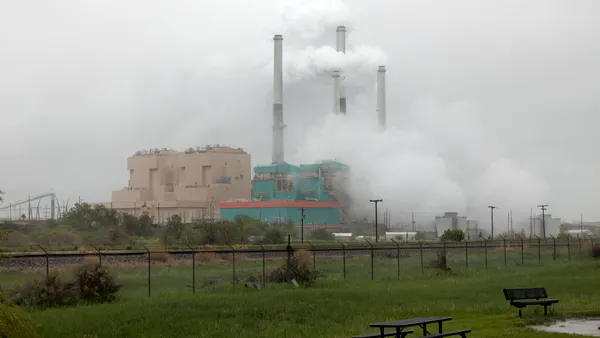Dive Brief:
- Google will reach 100% renewable energy for its global operations in 2017, an announcement that moves the company to the forefront of a corporate movement to ditch carbon-emitting power.
- The announcement includes Google's global data centers and offices. While the company has significant investments in renewable energy, in some instances, it will need to purchase and retire renewable energy credits to offset traditional generation.
- Apple has a similar carbon-free goal, but it has not indicated it can achieve it as soon as next year. In 2015, however, the company got 93% of its energy from renewable sources.
Dive Insight:
Search engine behemoth Google delivers 350% more computing power than it did five years ago, on the same amount of energy. That impressive growth in efficiency underpins the company's ability to move to renewable energy so quickly.
In a fact sheet on the announcement, Google officials said the all-renewable milestone is "just the first step." The company will continue to pursue contracts with renewable generators, and said it intends to "focus on regional renewable energy purchases in places where we have data centers and significant operations. We’ll also broaden the scope of energy sources to include technologies or services that can ultimately enable clean energy, every hour of every day."
Google announced it would pursue a 100% renewable strategy back in February, just months after it agreed to purchase 842 MW of wind and solar, almost doubling its renewable energy investment from 1.2 GW to 2 GW.
According to RE100, a collaborative, global businesses committed to 100% renewable electricity, there are currently 83 companies working to achieve carbon-free operations. Those include well-known names like Bank of America, Ikea, Adobe, Facebook, Microsoft, Starbucks and others.
Google said its work is not complete, however, and it will continue to pursue the "greater, longer-term challenge" of having renewable power available 24 hours a day.
"This will be an important next step to drive the clean energy industry from being an important but limited element of the global electricity supply portfolio today, to one that is able to fully and completely power both our operations and the entire electric grid of the future," the company said.













